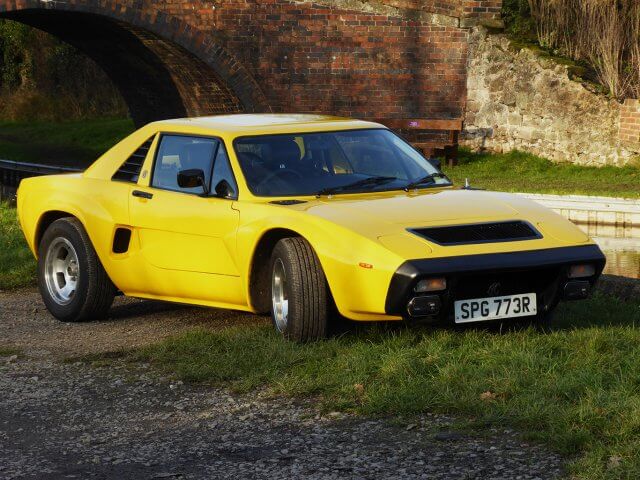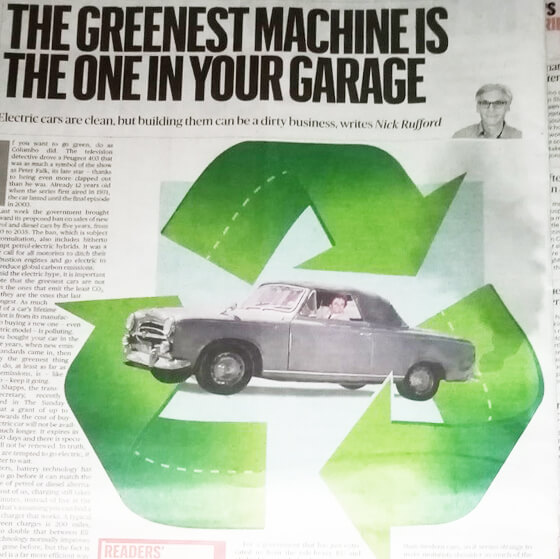Classics are green
Our grandparents were right all along: reuse, not replace.
The use of any vehicle is never an eco-positive activity, especially considering the emissions from internal combustion engines. But this is only part of the story. Compared with modern motoring, the infrequent use of classic cars is highly sustainable because they do not incur any current or future carbon release from manufacture and parts are typically repaired rather than replaced.

In fact, heritage vehicles make an awful lot of environmental sense: the average mileage per annum of a classic car in the UK is just 671 miles (source: FBHVC 2019 usage survey).
Green classics: the stats
Below compares annual carbon emissions from a typically used classic vehicle to modern petrol and a premium electric cars, both averaging 7900 miles per annum (please note: one litre of petrol produces 2.3 kg of CO2):
- The typical classic petrol car consuming 25mpg over 671 miles emits just 270Kg CO2 per annum, nearly all of which is from burning fuel.
- A modern mid-size petrol car which averages 45mpg, with a life span of 20 years, emits around 1620 kg per annum (770 kg from fuel plus an 850Kg share of the ‘manufacturing’ CO2) (The Guardian)
- A typical premium electric car emits around 1300Kg per annum (owing to the high Co2 burden of battery manufacture and the typical lithium battery lifespan, which is approximately 10 years) (https://www.drax.com/energy-policy/how-clean-is-my-electric-car/)
A typical classic car produces just 15 per cent of the greenhouse gases as that of a mid range modern family car and only 20 per cent of that of a premium electric car.

Reducing our own carbon footprint
GNC is further reducing carbon emissions by accommodating numerous specialists in one building. This rationalises energy use and makes use of one site as opposed to lots of smaller – generally poorly insulated – units. By having various businesses in one ‘hub’, the need for vehicle movement is likewise reduced, further cutting emissions.
Added to these ready-made reductions in carbon output, GNC also makes use of a PhotoVoltaic solar panel array on the roof, this is alongside a multitude of other improvements to building efficiency. We are actively – and sensitively – integrating future technologies into the heritage fleet, thereby continuing to improve their already modest impact.
Working with experts
In 2020 the City of Derby declared its ambition to become the UK’s centre excellence for future fuel technologies. The University of Derby is now working with the city’s existing advanced manufacturing experts to revolutionise the means by which low-carbon energy is used to power homes, businesses and transport. We at GNC are tapping into this expertise, supporting a project at the university to research green options for classic vehicles. This starts with a benchmarking exercise comparing the environmental footprint of all the known vehicle propulsion technologies. This will consider the impacts of manufacture, reengineering, fuel supply and emissions.
We will combine the University’s research and expertise in future fuels with the production carbon free options for existing classic cars. This crucial collaboration enables us to pioneer carbon-neutral classic motoring: we aim to be at the forefront of environmentally sustainable classic motoring.












